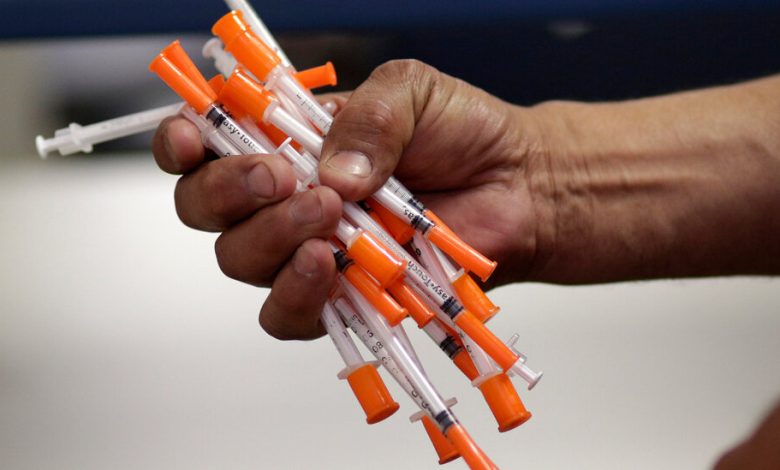Why Miami’s Approach to Addiction Is Working

The force behind Florida’s first legal needle exchange, Dr. Hansel Tookes, received an anxiety-provoking call from the state surgeon general’s office in April 2022. Health officials wanted to tour his Miami site, which provides clean syringes and other health care to people who inject drugs, an approach known as harm reduction that aims to stop people from getting hurt by drugs, rather than stop them from getting high.
“I assumed that it would be a challenging visit,” said Dr. Tookes. Programs like his are facing backlash even in liberal enclaves like San Francisco, and Florida’s governor, Ron DeSantis is, not known for embracing policies that could be viewed as “woke.”
When the delegation arrived, however, Dr. Tookes was pleasantly surprised. The officials seemed interested in how he distributed overdose antidotes and eased patients into medication treatment for addiction. They pressed him to explain how attracting people into care works better than forcing abstinence and imposing strict rules, he said.
After Dr. Tookes’s program — known as IDEA Exchange, for the Infectious Disease Elimination Act that authorized it — was established in 2016, Miami’s overdose death rate began to decline and it has remained relatively stable compared with the rate in other Florida cities. While it is not yet possible to prove that the IDEA Exchange caused Miami’s overdose rate to fall, state officials suspected that it did. The health agency wanted to know what IDEA was doing right.
Despite data showing that harm reduction is a better approach than criminalization in curbing drug-related problems, politicians — particularly, but not only, on the right — have been hesitant to embrace it. Miami’s story illustrates not only that this policy does not cause the rises in overdose and disorder for which it is often blamed, but also that it can bridge ideological divides and work in a red state.
In 2008, while he was a medical student in Miami, Dr. Tookes started fighting for syringe exchanges to reduce the spread of AIDS. Florida stubbornly resisted. By 2015, Miami had one of the worst H.I.V. epidemics in the United States. To change politicians’ minds, Dr. Tookes realized he had to “meet them where they are,” just as his team does with people whose drug use is harmful. That meant using targeted forms of positive persuasion.
